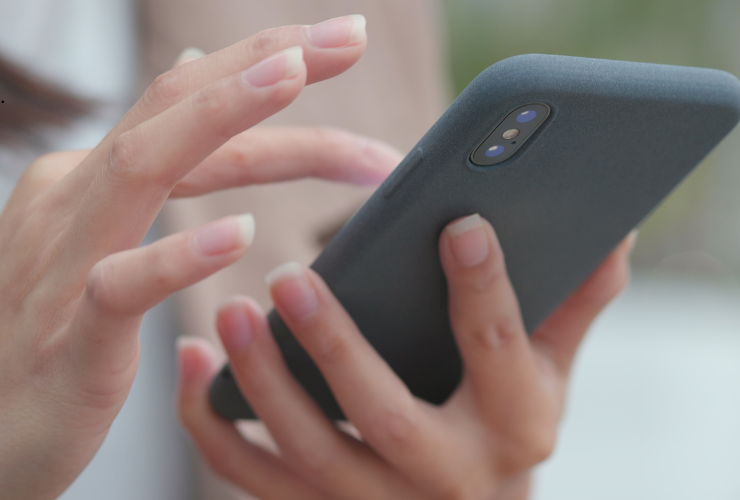10 Helpful Ways To Reduce Your Screen Time

Looking for simple ways to reduce your screen time? I’ve got you covered with 10 easy steps that helped me and can help you too.
It’s so easy to get caught up in social media or binge-watch shows for hours without even noticing.
But let’s be honest—how often does that actually make us feel good?
Scrolling through updates from people we don’t even know can quietly make us feel like we’re not doing enough or being enough.
And if most of your free time is spent on YouTube or Netflix, you might be missing chances to do things that actually feed your mind or bring peace.
You probably already know what I’m hinting at.
Screens are useful—no doubt about that. But they can also pull you in and steal hours from your day, leaving you feeling empty.
I’m not against screens. I work online, and I enjoy it.
Still, I believe using them less can be a smart move for your health and peace of mind.
This guide is for anyone who knows they need to cut back but isn’t sure where to start.
I’ll walk you through 10 ways to reduce screen time and help you make space for better habits.
If you’re ready to take control without feeling like you’re giving up too much, keep reading.
1. Start Noticing How Often You Check Your Screen
The first step for me was awareness.
I had no idea how often I picked up my phone “just to check something.”
So I turned on screen time tracking on my phone.
At the end of the day, I was shocked.
I was spending more than 5 hours a day on my phone—and most of it was on social media.
If you haven’t already, go check your screen time stats.
You might be surprised.
Knowing your patterns is the first step to changing them.
2. Set Time Limits for Apps That Waste Time
Once I saw where my time was going, I started placing limits.
Most phones let you set app timers.
I gave myself 30 minutes a day for Instagram and YouTube.
When the time was up, I logged off.
It wasn’t easy at first.
But after a few days, I didn’t miss it.
In fact, I started to enjoy the break.
Set a timer. Stick to it.
Let your phone help you create better habits.
3. Move Social Media Off Your Home Screen
This was a game-changer.
I moved Instagram, TikTok, and every other time-wasting app into a folder that I had to scroll to find.
Out of sight, out of mind.
It really worked.
When the app isn’t right in front of you, you’re less likely to tap it out of habit.
I also turned off notifications.
No buzzing. No distractions.
My phone was quiet, and I liked that.
4. Create Phone-Free Zones
I made a rule—no phones in bed.
And no phones at the dinner table.
At first, it felt weird.
But after a while, I started sleeping better.
And mealtime became a real break instead of another scroll session.
You can start small.
Pick one spot in your home where screens aren’t allowed.
It can be your bedroom, the bathroom, or even just a corner where you read.
You’ll be surprised how peaceful that space feels.
5. Keep Your Hands Busy with Something Else
I noticed I reached for my phone when I was bored.
Or anxious. Or just had a few minutes to kill.
So instead of reaching for my phone, I grabbed something else.
A book. A sketchpad. Even a stress ball.
I also started doing little things with my hands, like puzzles or doodling.
It helped keep my mind active and gave me a break from the screen.
Give your hands something else to do.
It really helps.
6. Replace Screen Time with Something You Enjoy
One of the best ways to reduce screen time is to give yourself something better to do.
I didn’t just cut out screens—I added in things I liked.
I started going for walks.
I called my friends instead of texting them.
I cooked more.
The more I enjoyed those things, the less I needed my screen to feel good.
Don’t just remove the screen—replace it with something that feeds your mind, body, or soul.
7. Use “Do Not Disturb” More Often
I used to feel like I had to reply right away.
Even late at night.
Even when I was tired.
But I realized something:
The world keeps spinning even if I don’t respond right away.
Now, I turn on “Do Not Disturb” when I need a break.
No pings. No stress.
Just quiet.
You can even schedule it to turn on every night.
It’s a small change, but it creates space.
8. Take a Break from Social Media (Even Just for a Day)
I tried a weekend without Instagram.
It felt weird at first.
Like I was missing out.
But by Sunday evening, I felt calm.
My head was clear.
I didn’t feel that pull to keep checking.
Taking a break—even for one day—can reset your brain.
You don’t have to quit forever.
Just give yourself space.
Try one day without social media.
See how you feel.
You might want to do it more often.
9. Spend Time Outside Without Your Phone
This one sounds simple, but it’s powerful.
Go outside without your phone.
Take a walk. Sit on your porch.
Just look around.
When I do this, I notice things I usually miss.
The sound of birds.
The way the wind feels.
The little moments that screens often drown out.
Even 10 minutes outside can refresh your brain.
And being away from your phone—even for a short time—reminds you that life is happening all around you.
10. Be Kind to Yourself About It
I still have days where I scroll too much.
I still fall into the trap sometimes.
But I don’t beat myself up about it anymore.
This isn’t about being perfect.
It’s about being more aware.
More in control.
Small changes add up.
If you slip up, just try again tomorrow.
We’re not machines.
We’re humans trying to do a little better each day.
Final Thoughts
Cutting back on screen time doesn’t mean giving up your favorite shows or deleting all your apps.
It’s about being more mindful.
Finding balance.
And making space for things that really matter.
These ways to reduce screen time helped me feel more present, more focused, and less stressed.
And they didn’t require any huge life changes.
Just a few small steps, taken one at a time.
If I can do it, you can too.
Start with one tip.
Then add another when you’re ready.
You’ve got this.










